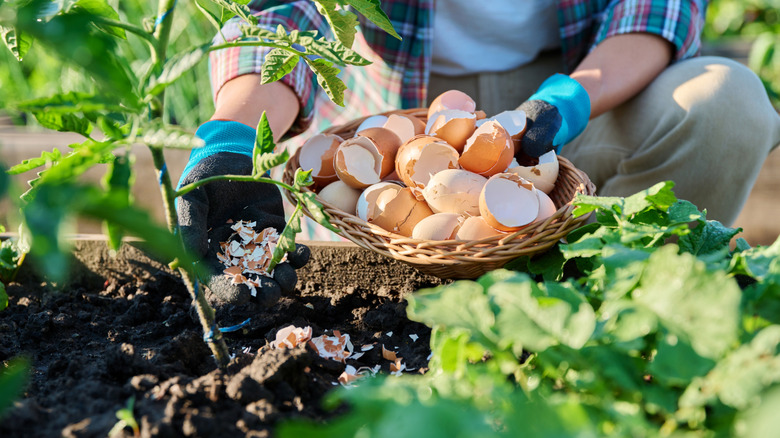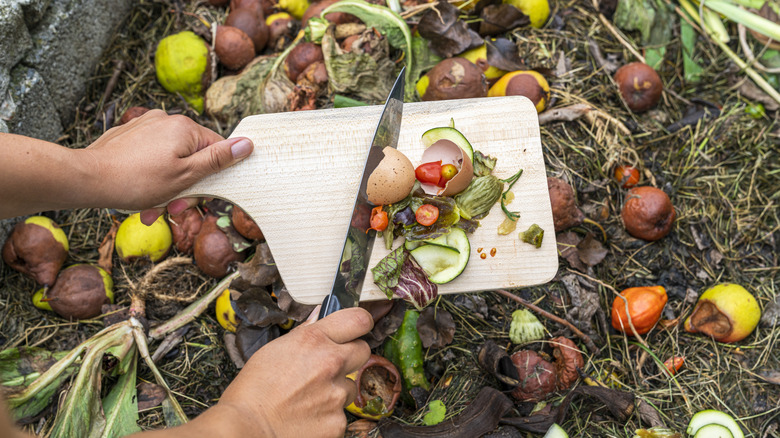Don't Throw Out Egg Shells: How This Classic DIY Can Transform Your Garden
A quality eggshell contains about 2.2 grams of calcium carbonate, the compound that gives them their strength. Eggshells also contain lesser amounts of magnesium, phosphorus, iron, copper, and potassium. Rather than tossing the shells, use them in your garden to enrich the soil as fertilizer. Adding eggshells to your compost bin, scattering them between plants, or working them into the earth before planting vegetables are some of the methods you can use for this easy DIY that will provide natural benefits to your garden.
To determine which method your garden will benefit from most, first have the soil tested. This will help you determine if nutrients are lacking and which ones. You can either order a test kit or send a sample to your local university's extension office. For soil with low calcium levels, add finely crushed or ground eggshells. A fine grind releases the calcium and makes it more readily available to your plants than the calcium in uncrushed shells. Add a handful to the hole before you plant seedlings or spread the crushed shells around the base of plants. If you do not have a coffee grinder or similar appliance to pulverize eggshells, you can boil them and let them steep overnight. Then you can strain the liquid and use it in the garden as a fertilizer. If your soil does not have a calcium deficiency, you can use other ways to add eggshells to your garden.
Compost eggshells or use them to repel slugs
Eggshells are also a common item used in composting, which is a method of putting the microbes found in nature to work in order to create healthy soil. In addition to crushed eggshells, grass clippings, and kitchen scraps, a host of other organic materials can be included in compost bins. However, not everything can be composted. For example, you want to avoid using meat and dairy products, bones, or fireplace ashes in your bin. There are a number of different methods, but the least labor-intensive is cool composting, where you make a pile of material and let the microbes go to work. This method only requires occasionally turning the pile, but the process can take as long as a year.
Eggshells have another benefit beyond their use as a fertilizer or compost ingredient. They can help ward off pests like slugs, those slimy creatures that feed on plant leaves. Master Gardener Laura Emerson says that the sharp edges of ground eggshells deter slugs because they are painful to slither across. But other horticulturists point out that there is only anecdotal evidence that this works.
Scientists do agree that, while you can use eggshells in tomato gardens, they cannot single-handedly prevent blossom end rot, a condition that is caused by a lack of calcium in the soil that turns the flesh on the end of the tomato to mush. Unfortunately, because of the way calcium is taken up into plants, adding eggshells to the soil will not necessarily prevent it from occurring.

